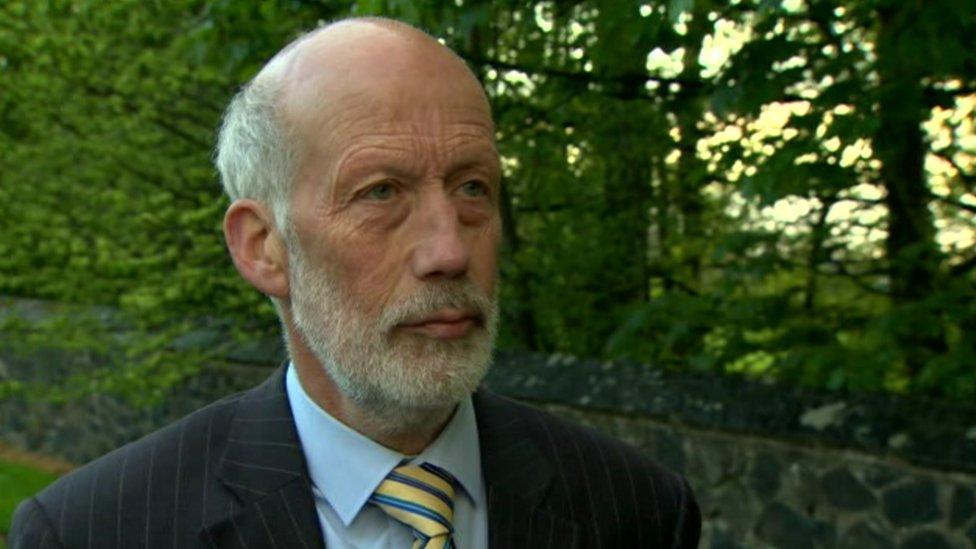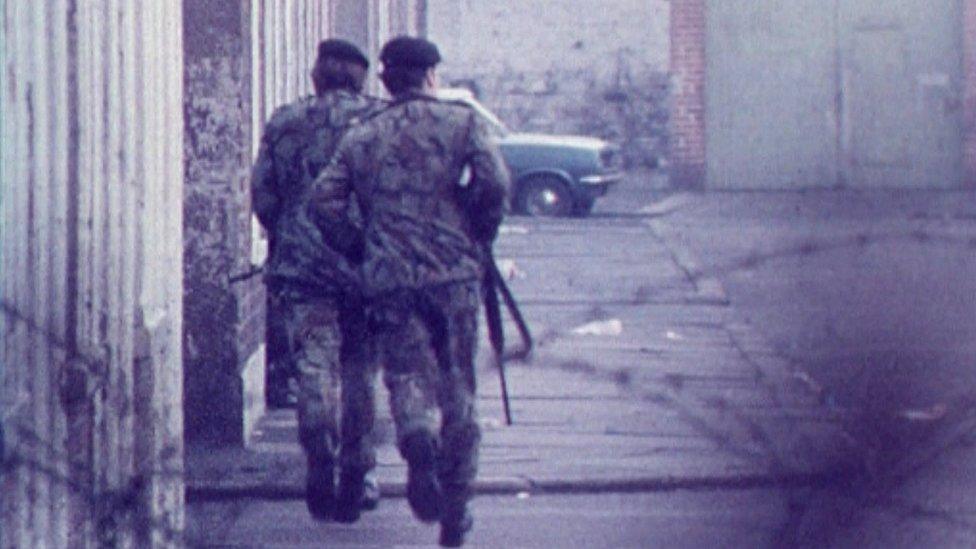Former NI justice minister criticises PM's legacy claims
- Published

David Ford says Theresa May's comments dishonour 'the memory of the vast numbers who did their duty honestly'
A former Justice Minister in Northern Ireland has said Theresa May is 'coming close to political interference' after she described the system for investigating the past as 'unfair'.
Mrs May told the Commons on Wednesday that only people in the "armed forces" or "law enforcement" were being investigated.
She said that terrorists should be investigated too.
David Ford said her comments are not welcome.
In 2017, figures obtained by the BBC challenged claims that Troubles investigations unduly focused on those committed by the Army.
'Simply isn't true'
"Both the Prime Minister and the (Northern Ireland) Secretary of State said that the only people who feared being pursued for actions in the past were effectively police officers or soldiers.
"That simply isn't true.
"The reality is police and the prosecution service have an obligation to follow the evidence wherever it leads them.
"To suggest otherwise is to interfere in the justice system," he added.
The Alliance Party MLA for South Antrim said that a draft consultation document on legacy matters in Northern Ireland did not not include provision for a so-called statute of limitations.
Allow X content?
This article contains content provided by X. We ask for your permission before anything is loaded, as they may be using cookies and other technologies. You may want to read X’s cookie policy, external and privacy policy, external before accepting. To view this content choose ‘accept and continue’.
"Yet the Prime Minister seems to put it back in," he said.
"That is completely unhelpful and in fact dishonours the memory of the vast numbers who served in uniform and did their duty honestly, properly and at personal risk by defending those who broke the law.
"It seems to me what the prime minister has done has come close to political interference."
Sinn Féin's deputy leader Michelle O'Neill said the Prime Minister's comments dashed the hopes of victims.
Allow X content?
This article contains content provided by X. We ask for your permission before anything is loaded, as they may be using cookies and other technologies. You may want to read X’s cookie policy, external and privacy policy, external before accepting. To view this content choose ‘accept and continue’.
"I am so disappointed for all those people who have been waiting for so long to get access to the mechanisms that were agreed in the Stormont House Agreement.
"And you have to ask yourself the question why?
"And the reason is very simple, the British Government and their infighting, the Tory government, the dysfunctionality, their own selfish interests have again been put first over and in front of the needs of victims."
In a later tweet, she revealed she had spoken to the Tánaiste (Irish deputy prime minister) Simon Coveney about Mrs May's comments.
Speaking to BBC Good Morning Ulster, Julian Lewis the Conservative chairman of the Commons Defence Select Committee said he did not think the Prime Minister and the Northern Ireland secretary Karen Bradley deliberately misled the house.
"I think that what they are doing, unfortunately, is substituting a degree of rhetoric for a potential solution," he said.
He said the legal advice given to the Defence Select Committee was that a statute of limitations would have to apply to everybody in order not to be challengeable under international law.
He also said there needs to be a truth recovery process in which participants would be immune from prosecution.
However, he said that would mean no one side would win the argument, saying the idea that the punishment fits the crime went out with the Good Friday Agreement early release scheme.
- Published8 May 2018
